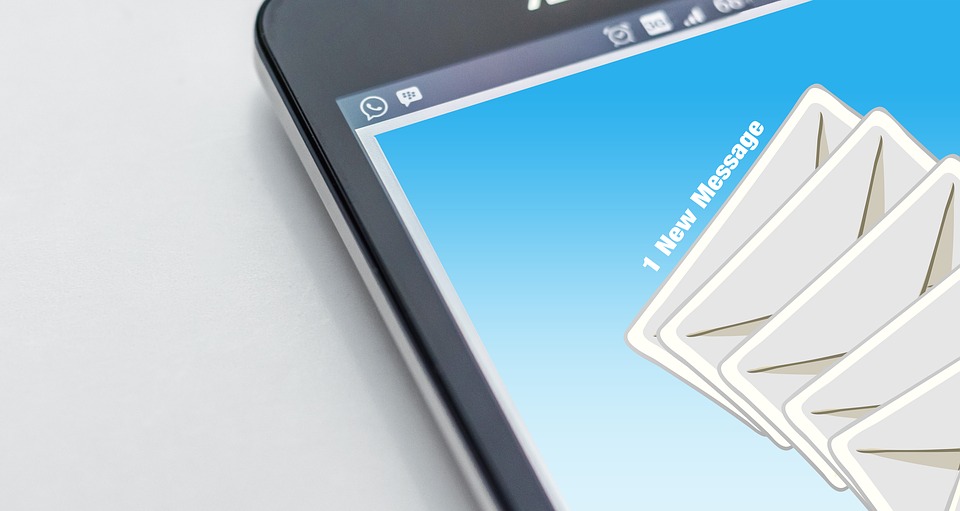|

2019 Web Globalization Report Card: Analysis & Benchmarking of the World's Leading 150 Websites
DUBLIN, Sept. 18, 2019 /PRNewswire/ -- The "The 2019 Web Globalization Report Card" report has been added to ResearchAndMarkets.com's offering.
Raise the global readiness of your company
Web and mobile globalization is complicated. You must navigate countries, cultures, content and, in many cases, must coordinate among central and remote offices to ensure everything works smoothly. For more than 15 years, The Web Globalization Report Card has been the "secret weapon" for global organizations, answering questions such as:
- What languages must we support? What languages are most popular on the internet?
- What emerging trends in localization should we be aware of?
- What do we need to know about China compliance and our website?
- Why are flags such a danger to use on websites?
- Who is doing the best job of localizing models?
- How do we build a truly user-friendly global gateway?
- How is our global website doing compared with our competitors-and why?
- What common mistakes are companies making with their websites?
- How do we design a website to best manage diverse brands and diverse locales?
Learn best practices and emerging trends
This report, now in its 15th edition, answers these questions and many more. You'll learn which companies have improved their global and mobile websites - and why. Through website profiles, loaded with screenshots, you'll learn which practices to emulate and, of equal importance, which to avoid. More than a dozen industry sectors are profiled, with key web localization developments and best practices highlighted with visuals.
150 global websites benchmarked
This year, like years before, the publisher benchmarked 150 websites across more than a dozen industry categories. These websites comprise 80% of the companies on the Interbrand Best Global Brands 2018 list and more than 30% of the Fortune 100, ensuring a broad reach of the leading global brands and businesses.
How to use the Web Globalization Report Card
Never before have companies been expected to support so much content across so many languages and across so many devices. And while this continues to be a very exciting time to be involved in web globalization, it's also quite challenging.
This report serves two purposes. First, it calls attention to those websites that have excelled in the practice of web globalization. The companies that have made the top 25 did not get there by chance. The people who have helped raise their websites onto the top 25 list deserve recognition for helping their companies communicate effectively with the world, regardless of language, culture, or geography.
Second, this report identifies emerging trends (both positive and negative) to help you avoid the painful missteps that others have already taken. This report is designed to help you guide your web, marketing, content, mobile and local teams to positive, efficient action.
Two decades of web globalization experience
The publisher has consulted with hundreds of multinationals and has learned what works and what doesn't work and, just as important, where their websites are headed. This expertise is carried ove into the methodology of the Report Card, the first report dedicated to best practices in web globalization. The report is relied on by some of the most innovative global and consumer product companies.
Every year, the publisher conducts a hands-on analysis of the world's leading websites, analyzing how web designs are shared across countries and mobile platforms, noting languages used on every website. The research studies local content, visuals, social media, website weight (in kilobytes), and navigation.
This information, along with 15 years of historical and linguistic data, will help you benchmark your company against competitors and best of breed sites such as Google, Wikipedia, Amazon, IKEA, NIVEA and Booking.com. A combination of quantitative data and practical, hands-on advice make this report an invaluable resource for any company doing business across borders.
Who this report is for:
- Marketing executives use this report to improve the effectiveness and usability of their global websites. The numerous screenshots included in the report clearly illustrate trends and best practices. The report points out flaws in many of the world's most popular websites - and, more important, makes clear suggestions for improvement.
- Web and IT executives use this report to learn best practices and drive changes within their companies based on concrete data. For example, knowing exactly which companies are now using geolocation can help raise awareness and get management buy-in. No other report will tell you exactly which companies are using geolocation right now and which companies are using language detection.
- Web design firms and advertising agencies rely on this report to upgrade their web globalization skills. This report's accessibility and its wide range of real-world examples make complex concepts more easily understood.
The Top 25 Global Websites
Joining Wikipedia on the list of the top 25 websites are regulars such as Google, NIVEA, Adobe, and Philips. New to the list this year are Uber, Volvo, and Emirates.
The teams behind the websites featured in the top 25 all deserve a round of virtual applause. The researchers know how difficult it can be to build the case for supporting languages -- and how one must continually battle to support usability for all users, not just those who speak the dominant languages of the executive team.
A few key findings from the report:
- Actions speak louder than words. Despite all the talk of walls and Brexit, companies continue to expand their global reach. The average number of languages supported by the leading global brands is now 32 languages-more than double the number of languages from a decade ago.
- There's a good reason Google ran an ad for Google Translate during the Super Bowl. The internet may connect computers but language connects people. Google Translate supports more than 100 languages and acts as a linguistic front end for many websites.
- Uber is on a language-expansion streak. It added 11 languages over the past two years and now supports 46 languages.
- Volvo finished as the highest-scoring automotive website.
- The average number of languages supported by the companies on this list exceeds 60.
Websites Featured
- 3M
- ABB
- Accenture
- Adidas
- Adobe
- Airbnb
- Alibaba
- Allianz
- Amazon
- American Airlines
- American Express
- Apple
- Audi
- Autodesk
- Avis
- Avon
- Axa
- Bayer
- BBC
- BMW
- Booking.com
- British Airways
- Burberry
- Canon
- Capgemini
- Cartier
- Caterpillar
- Chevrolet
- Cisco Systems
- Citibank
- Coca-Cola
- Costco
- Dell
- Deloitte
- Delta
- DHL
- Disney
- Dyson
- eBay
- Eli Lilly
- Emirates
- Enterprise
- Ernst & Young
- Expedia
- Facebook
- FedEx
- Ford
- Four Seasons
- GE
- Gillette
- GoDaddy
- Goldman Sachs
- Google
- Gucci
- H&M
- Heineken
- Herms
- Hertz
- Hilton
- Hitachi
- Honda
- Honeywell
- Hotels.com
- HP
- HP Enterprise
- HSBC
- Huawei
- Hyatt
- Hyundai
- IBM
- IKEA
- Intel
- InterContinental Hotels
- J&J
- Jack Daniel's
- Jehovah's Witnesses
- John Deere
- Kayak
- KLM
- KPMG
- Land Rover
- LEGO
- Lenovo
- Lexus
- LG
- Loral
- Louis Vuitton
- LUSH
- Marriott
- MasterCard
- McDonald's
- Mercedes
- Merck
- Michelin
- Microsoft
- Mini
- Mitsubishi Electric
- Mont Blanc
- MUJI
- Nestl
- Netflix
- Nike
- Nikon
- Nintendo
- Nissan
- NIVEA
- Oracle
- Pampers
- Panasonic
- PayPal
- Pepsi
- Pfizer
- Philips
- Procter & Gamble
- PWC
- Roku
- Rolex
- Royal Caribbean
- Salesforce
- Samsung
- Sanofi
- SAP
- Siemens
- Sony
- Spotify
- Starbucks
- Steelcase
- Subaru
- Tesla
- Texas Instruments
- The Church of Jesus Christ of Latter-day Saints
- Thomson Reuters
- Tiffany
- Toshiba
- Toyota
- TripAdvisor
- Trivago
- Twitter
- Uber
- United Airlines
- UPS
- Visa
- Volkswagen
- Volvo Cars
- Walmart
- Western Union
- Wikipedia
- Xerox
- Xiaomi
- Zara
For more information about this report visit https://www.researchandmarkets.com/r/tx7szy
Research and Markets also offers Custom Research services providing focused, comprehensive and tailored research.
Media Contact:
Research and Markets
Laura Wood, Senior Manager
[email protected]
For E.S.T Office Hours Call +1-917-300-0470
For U.S./CAN Toll Free Call +1-800-526-8630
For GMT Office Hours Call +353-1-416-8900
U.S. Fax: 646-607-1907
Fax (outside U.S.): +353-1-481-1716
 View original content:http://www.prnewswire.com/news-releases/2019-web-globalization-report-card-analysis--benchmarking-of-the-worlds-leading-150-websites-300920688.html View original content:http://www.prnewswire.com/news-releases/2019-web-globalization-report-card-analysis--benchmarking-of-the-worlds-leading-150-websites-300920688.html
SOURCE Research and Markets

[ Back To Mobile World Congress's Homepage ]
|

 Internet Telephony Magazine
Click here to read latest issue
Internet Telephony Magazine
Click here to read latest issue CUSTOMER
CUSTOMER  Cloud Computing Magazine
Click here to read latest issue
Cloud Computing Magazine
Click here to read latest issue IoT EVOLUTION MAGAZINE
IoT EVOLUTION MAGAZINE













